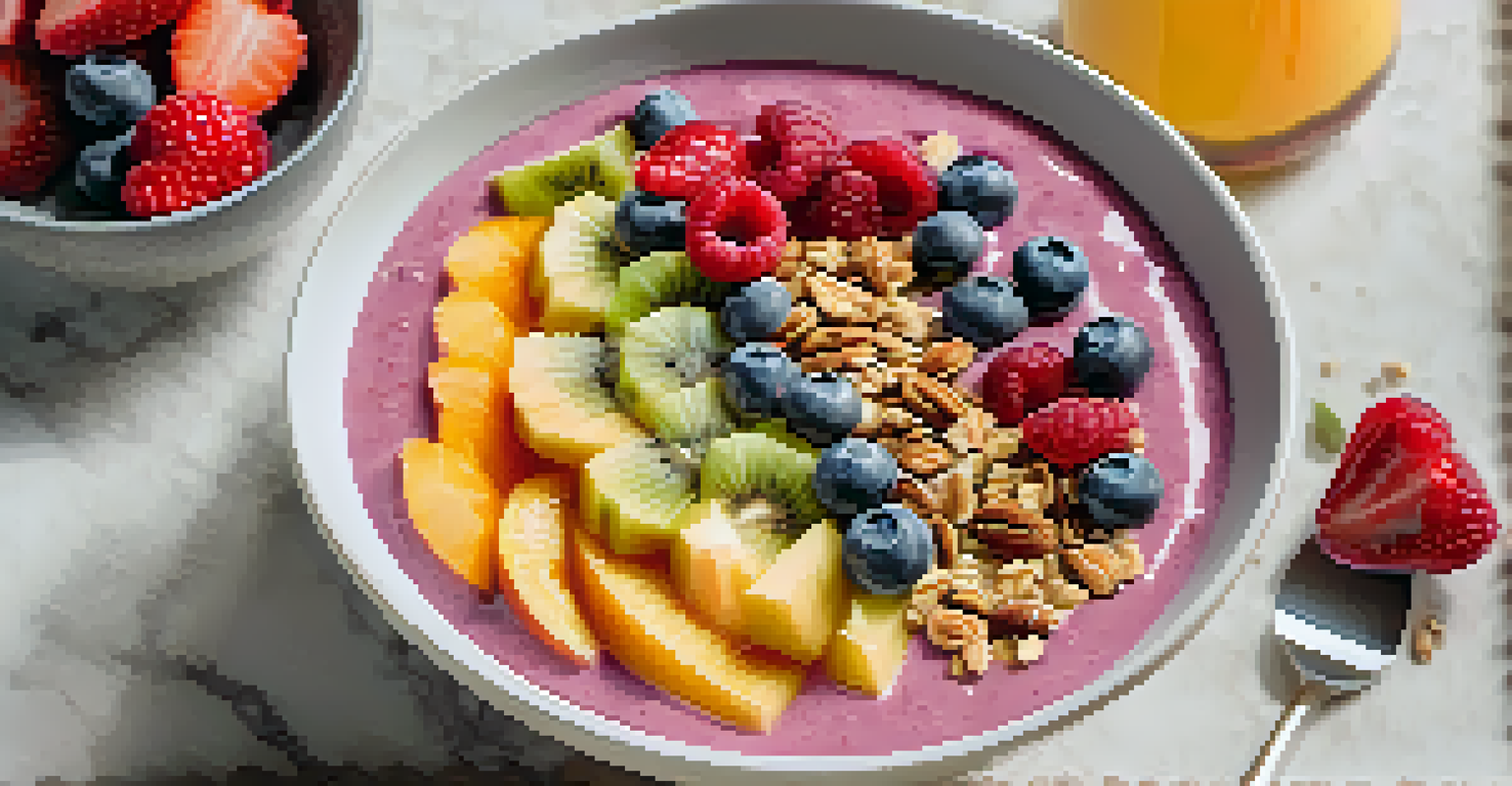Introduction to Plant-Based Dairy Alternatives for Everyone

What Are Plant-Based Dairy Alternatives?
Plant-based dairy alternatives are non-dairy products made from various plants. They serve as substitutes for traditional dairy products like milk, cheese, and yogurt. Common sources include almonds, soy, oats, and coconuts, each providing unique flavors and nutritional benefits.
The greatest threat to our planet is the belief that someone else will save it.
These alternatives cater to a wide range of dietary preferences, including lactose intolerance, veganism, and those seeking to reduce animal product consumption. They offer similar textures and tastes, making it easier for anyone to transition away from dairy without sacrificing enjoyment.
With the growing interest in health and sustainability, these products have surged in popularity. Whether you’re a seasoned vegan or just curious about reducing dairy in your diet, plant-based alternatives provide delicious options for everyone.
The Nutritional Benefits of Plant-Based Dairy
One of the most appealing aspects of plant-based dairy alternatives is their diverse nutritional profiles. Many options are fortified with vitamins and minerals, such as calcium and vitamin D, making them comparable to traditional dairy in terms of nutrient content. Additionally, they often contain lower levels of saturated fats.

For instance, almond milk is low in calories and rich in vitamin E, while soy milk provides a good source of protein. This variety allows consumers to choose products that align with their health goals, whether it’s building muscle, losing weight, or simply maintaining a balanced diet.
Variety of Plant-Based Options
Plant-based dairy alternatives, such as almond, soy, and oat products, offer diverse flavors and textures that cater to various dietary preferences.
Moreover, incorporating these alternatives can contribute to heart health and improved digestion. By opting for plant-based dairy, you're not just making a choice for yourself but also supporting a healthier planet.
How to Choose the Right Plant-Based Dairy Alternative
With so many options available, it’s essential to know how to select the best plant-based dairy alternatives for your needs. Start by considering your dietary preferences and any allergies you might have. For example, if you’re allergic to nuts, you might want to avoid almond or cashew products.
Let food be thy medicine and medicine be thy food.
Next, check the ingredient list and nutritional information. Some brands add sweeteners, thickeners, or preservatives that may not align with your health goals. Look for products with minimal ingredients for a cleaner choice.
Finally, think about flavor and texture. You might find that you prefer the creaminess of oat milk in your coffee or the tangy taste of coconut yogurt in your desserts. Experimenting with different brands and flavors can lead to delightful discoveries!
Popular Types of Plant-Based Dairy Alternatives
There’s a wide array of plant-based dairy alternatives, each with its unique characteristics. Almond milk is a popular choice for its light flavor and versatility, making it great for smoothies and cereals. Soy milk, on the other hand, has a creamier texture and is often favored for cooking and baking.
Coconut milk and yogurt provide a rich, tropical taste, ideal for curries and desserts. Oat milk has gained popularity for its smoothness and ability to froth well in coffee drinks, making it a favorite among baristas and coffee lovers alike.
Nutritional and Environmental Benefits
These alternatives are often fortified with essential nutrients and can have a lower environmental impact compared to traditional dairy.
Exploring different types can be a fun journey. You might find that a specific alternative enhances your favorite recipes or beverages, adding a new twist to your culinary adventures.
Cooking and Baking with Plant-Based Dairy Alternatives
Using plant-based dairy alternatives in cooking and baking can open up a world of new flavors and textures. For instance, you can substitute almond milk for regular milk in most recipes without compromising taste. Just be mindful of the flavor profile; certain alternatives may alter the final result slightly.
When it comes to baking, coconut yogurt can replace traditional yogurt or sour cream in recipes, adding moisture and a hint of tropical flavor. Similarly, using cashew cream can give your dishes a rich, creamy texture without the dairy.
Just remember, each alternative behaves differently, so some experimentation may be necessary. The key is to enjoy the process and discover how these substitutes can enhance your cooking.
Challenges and Misconceptions About Plant-Based Dairy
Despite their growing popularity, there are still some challenges and misconceptions surrounding plant-based dairy alternatives. One common myth is that they lack sufficient protein compared to dairy, but many alternatives, especially soy and pea protein products, can be high in protein.
Another concern is that plant-based options may not taste as good as their dairy counterparts. However, with advancements in food technology, many brands have developed products that closely mimic the taste and texture of traditional dairy, satisfying even the pickiest eaters.
Choosing the Right Alternative
Selecting the best plant-based dairy involves considering dietary needs, reading ingredient labels, and experimenting with different flavors.
Educating yourself on these alternatives and trying different brands can help dispel these myths. It’s all about finding what works for you and embracing the variety that plant-based dairy has to offer.
The Environmental Impact of Plant-Based Dairy Choices
Choosing plant-based dairy alternatives can have a positive impact on the environment. Producing plant-based products generally requires fewer resources, such as water and land, compared to conventional dairy farming. This can lead to a smaller carbon footprint and less overall environmental strain.
For example, almond and oat milk typically use significantly less water than dairy milk. Additionally, reducing dairy consumption can contribute to lower greenhouse gas emissions, making a small yet meaningful difference in combating climate change.

By opting for plant-based alternatives, you’re not just benefiting your health; you’re also making a conscious choice for the planet. Every small change counts, and collectively, these choices can lead to a more sustainable future.